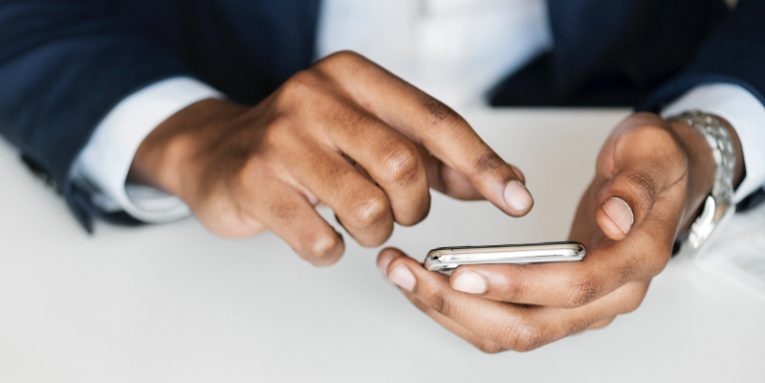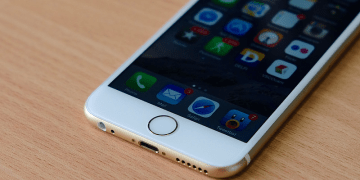How to Ensure Your Smartphone Is Not Being Used to Spy on You

Modern technology and privacy don't always go hand in hand. The presence of the word 'smart' in a device's name means that the gadget 'knows' quite a lot about its owner, and often, manufacturers are willing to share this information with other people. In fact, sharing data is now a part of some consumer electronics vendors' business plan. With smartphones, the privacy concerns are even bigger because these little gadgets are with us everywhere we go. There is a difference between the collection of data and surveillance, however, and making this distinction is very important.
Table of Contents
Where do you draw the line?
Spying, in its most traditional sense, involves listening in on the target's conversations or filming them as they go about their day. Over the years, however, the problem has become a bit more faceted, and right now, other aspects aren't nearly as clear-cut.
Ask some people, for example, and they'll tell you that even the act of examining a person's browsing history fits the definition of spying. On the other hand, some users actually enjoy the fact that their Facebook feed is full of adverts for things they might be interested in.
Ultimately, different people will have different levels of tolerance towards the collection of information by the devices in their pockets. The task, then, is to achieve the level of privacy that you deem appropriate. We'll now give you a few hints on what you should consider in order to do this.
Be aware of the data collection practices
Installing an application on a smartphone automatically means that you're giving it some access to your personal information. This is described in the permissions it asks for during the installation process, and you should always read through them carefully before you tap the "OK" button.
Knowing what sort of information is collected is the first step. Knowing how it's going to be used is the next. Unfortunately, this means delving into the fine print.
Not too many people read the terms and conditions, and fewer still probably go through the privacy policies of the services they are using. The European Union's General Data Protection Regulation (GDPR) was supposed to simplify the process of learning what your data is going to be used for, but although it has improved the situation, the problem is not fully resolved. Regardless of whether or not you live in the EU, you should be aware of how your data is handled, and who it's shared with.
App developers collect information in order to monetize it, and that, strictly speaking, isn't considered spying. When other people and organizations get their hands on the said data, however, they can use it for keeping a close eye on people's private lives.
Don’t install suspicious apps on your smartphone
If bad people want to get a foothold on your mobile phone, they'll need software that either collects your information or uses the device's camera and/or microphone to eavesdrop on you. When it comes to smartphones, software comes in the shape of applications, which users often install without thinking too much about it. As we mentioned already, during the installation process, you should be careful not to give an app too many permissions. It would be even better if you don't get that far, though.
You've probably heard already that you should download applications only from reputable sources. Sure, malware does appear on the official app stores more frequently than it should, and Google in particular could do worse than up its game a bit. Even so, there are security mechanisms that block thousands of malicious applications every day and save plenty of people a lot of headaches. The screening process, faulty though it may be, does provide extra security, and you must be sure to take advantage of it.
Don’t let other people install suspicious apps on your smartphone
Installing an app on a modern smartphone takes seconds, which is one of the reasons why you should never leave your phone unattended. There are just as many reasons why you should always use your smartphone's authentication mechanisms (be it a strong password, a pattern or biometrics) to keep it locked when it's not in use.
This should all be common sense. Smartphones aren't exactly cheap, so you don't want to see them getting stolen. One thing that is more valuable than the device itself, however, is your data which is why you don't want to see the phone getting unlocked easily, either.
Pick your communication methods carefully
As we discussed recently, the technology that enables us to communicate with our mobile phones is surprisingly old and not terribly secure. Attackers that are motivated enough can, for example, intercept and read text messages with relative ease, which is why choosing the right communication method is extremely important.
Messaging applications like Signal and WhatsApp promise to protect your private conversations with the use of end-to-end encryption. Do some research, and depending on your threat model, choose the service that best serves your needs.
Look into not just how you communicate with other people but how your phone communicates with the Internet. Don't forget that unless you take the necessary precautions, most of the things you do online leave a trace. If you feel like this trace might put you in danger, you can use a reputable VPN provider to ensure that your ISP and other parties can't see who you are or what you're doing. The Tor network is also a tool that can help you stay anonymous online.
Be vigilant
Many people are left with the impression that security specialists are being overly paranoid, and indeed, not everything they say applies to everyone. It's fair to say, however, that all users need to be careful when they're online.
If a link comes in an unexpected email, it's probably best to avoid clicking it. Inspect the URL in the address bar carefully every time you enter your login credentials, and take proper care of your passwords, ideally with the help of a password manager.
Spying is not something many people are traditionally afraid of, but with the ubiquity of the internet and the opportunities it creates, even regular users shouldn't underestimate the threat.








